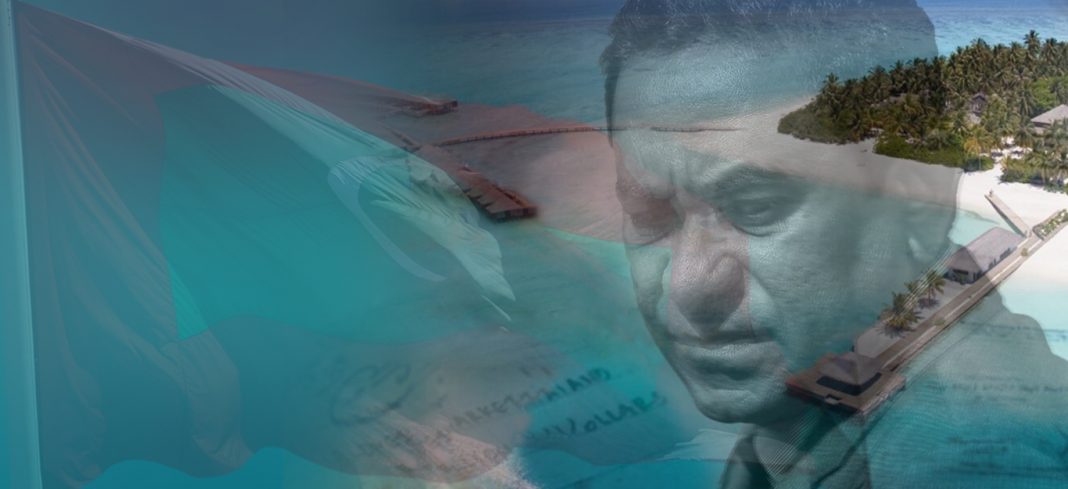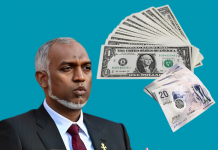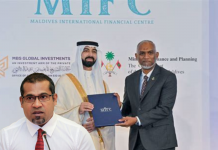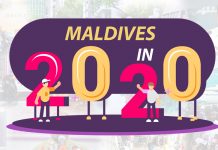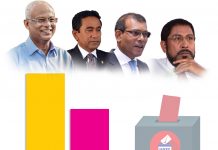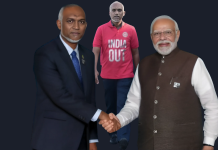Many Europeans consider the Maldives absolute paradise – a destination for honeymooners or lottery winners. What they don’t know, is that all is not well in paradise.
Maldivian citizens are sharing their concerns about the upcoming September elections, set to be undemocratic and rife with civil rights abuses. In his attempts to dissolve the opposition, President Abdulla Yameen has forced the majority of his political opposition into exile under the very real threat of imprisonment.
The judiciary’s independence is also threatened, as judges are replaced with those loyal to Yameen, and legislation is adopted to prevent exiled politicians from standing as electoral candidates. Such changes are deemed “unconstitutional” by the citizens of the Maldives.
Of greatest concern is the potential sale of the Maldivian land to foreign governments. The Maldives is made up of 2000 islands, 188 of which are inhabited by Maldivian citizens. Many of the islands, including those inhabited, have been sold to the Chinese government for infrastructure projects, including a proposed military base. The Constitution of the Maldives forbids the sale of land to foreigners, but even the Constitution can be manipulated where large sums of money are concerned.
Over 80 per cent of the Maldivian economy is concentrated in tourism, with large number of tourists coming from the EU. Allowing China to own the land, and to build further military bases in the region, will cause increased tensions in the South China Seas and Indian Ocean. This brings instability and risks for tourists, indeed several European states already issue messages of concern for tourists travelling to the Maldives.
The EU is therefore in a key position to ensure free and fair elections in the Maldives. Its founding principles of respect for human rights and democracy can ensure protection of the Constitution which it helped establish.
Recent actions by MEPs, including meetings with the Former Maldivian Vice-President, Mohamed Jameel, during the Strasbourg plenary session in June have been powerful.
A letter to the External Action Service, co-signed by multiple MEPs, has resulted in a strongly worded statement from the European Commission to the Maldivian government whist it imposes a framework of actions ahead of the September elections, hoping to bring transparency and democracy to the election process.
Failure by the current government to deliver on their international obligations actions will result in imposed sanctions, which will severely damage the country’s economy – affecting the livelihoods of businesses and people who rely on tourism for their incomes. Imposed sanctions are a last resort, but with only three months to the elections, serious redress must be taken quickly.
The international community, including the EU, has now called on President Yameen to maintain rule of law and abide by the Constitution. He must allow the opposition to stand in elections, ensure freedom of the press and stop all intimidation, harassment and other illegal means that risk the credibility, civil liberties and democracy of the Maldives.
European civil society and public opinion now understand that ‘a paradise’ could very soon become ‘a hell’. Time still allows for civil and political rights in this archipelago to be respected. It is not too late for the political authorities of the Maldives to ensure stability and prosperity for their people before sanctions result in the inevitable decline of tourism, the principal resource for the habitants of these islands.
 About the author– Henri Malosse is the former President of the European Economic and Social Committee
About the author– Henri Malosse is the former President of the European Economic and Social Committee
News source- All is not well in paradise

